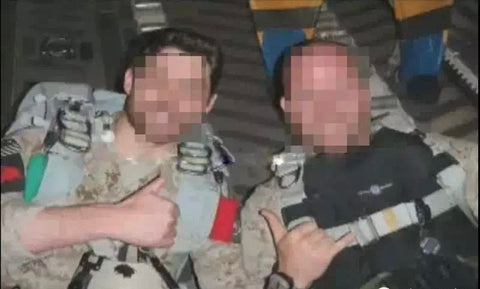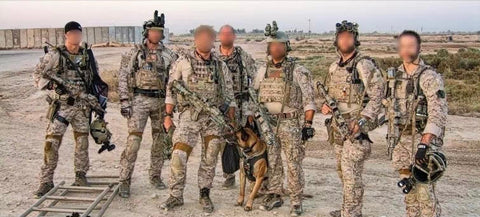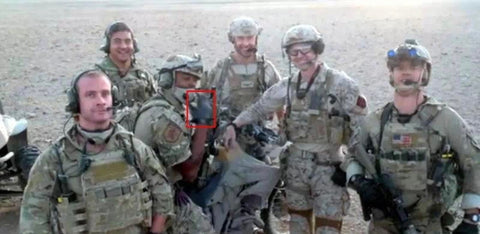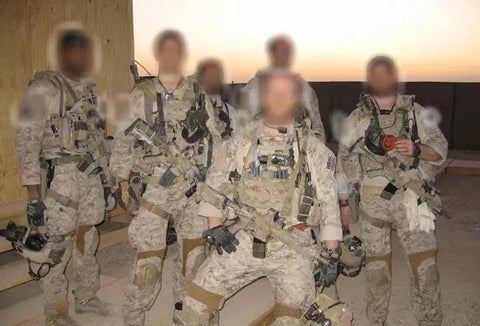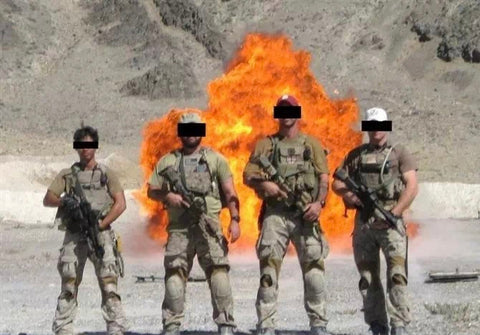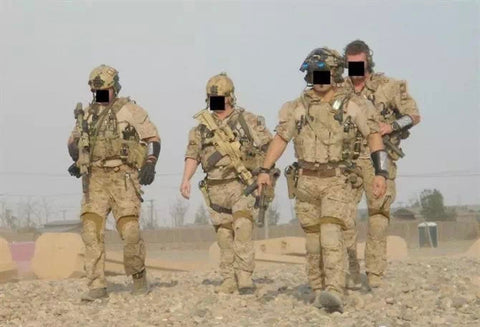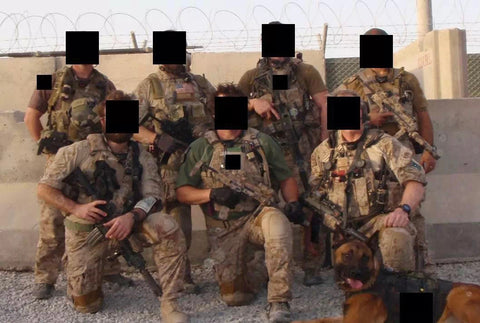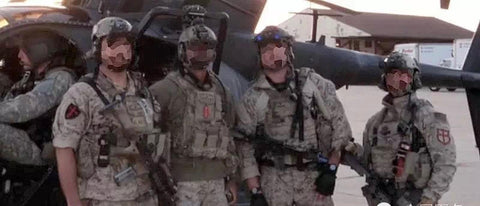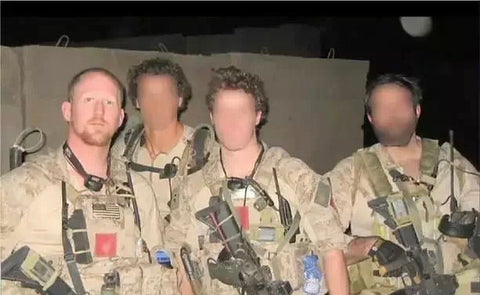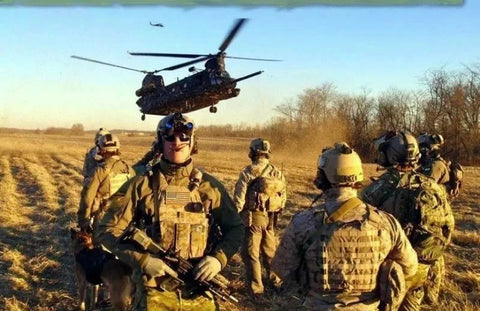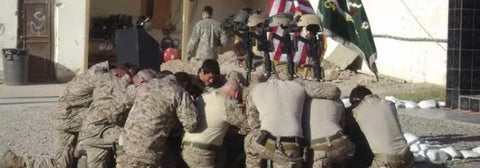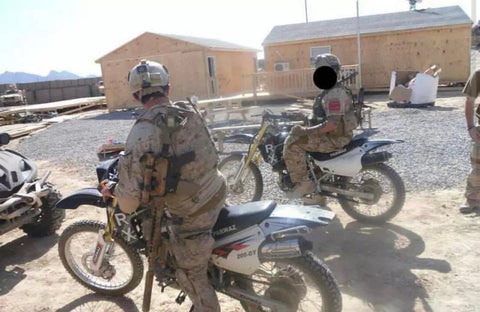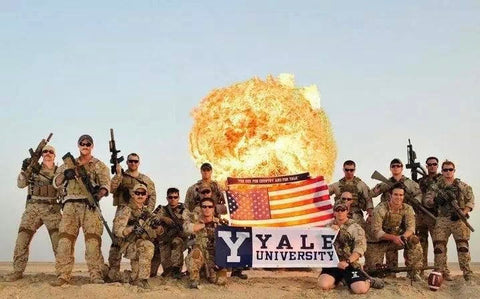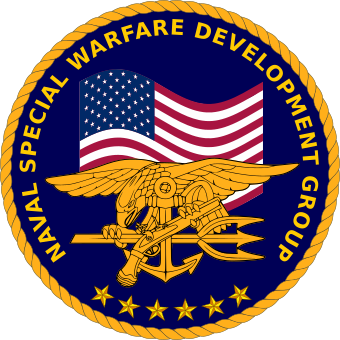DEVGRU is the abbreviation of United States Naval Special Warfare Development Group, the United States Naval Special Warfare Development Group (or the United States Naval Special Operations Research Group), subordinate to the United States Department of Defense United States Special Operations Command, through the United States Naval Special Operations Command Joint Special Operations Command The Ministry cooperates with the US Central Intelligence Agency to conduct covert operations worldwide.
After the failure of the Operation Blue Ray of the US Army's Delta Special Forces, the US military felt that it was necessary to establish a special special operations command to coordinate and command counter-terrorism operations. In October 1980, the United States Joint Special Operations Command (JSOC) was established, and the Navy responded accordingly. The 6th counter-terrorism team was established, SEAL Team SIX, abbreviated ST6, or the US Navy SEAL Corps Sixth Squad), is the US Navy’s counter-terrorism special forces, mainly from the 1st and 2nd teams, the earliest was about 90 men, and at that time The captain of the SEAL 2 team, Charles Masink, became the founder of the 6th team.
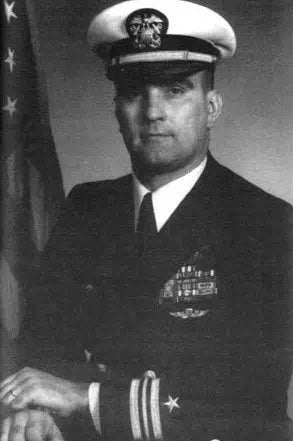
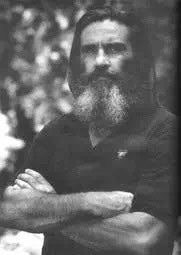
Richard Marcinko
(Note: Marcinko has been mistaken for the founder of the SEALs. In fact, he is only the founder of the SEAL Team 6. The founder of the SEALs is Roy Boehm)
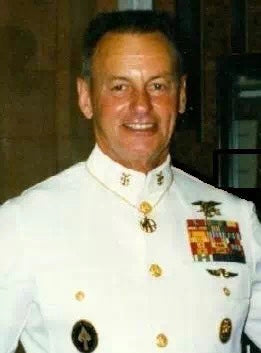
The founder of the seals is Roy Boehm
Since SEAL Team 6 often performs highly confidential operations around the world, and these actions often violate the laws of the United States or the country in which the incident occurred, in order to keep confidential, circumvent legal issues, and conceal the relationship between these actions and the US government. The budget of the entire SEAL team 6 is allocated in the name of a private company, so that the "Congressional Finance Committee" which responsible for the approval of the U.S. government's budget has been ignorant of its existence for a long time, making it out of the sight of national monitoring agencies such as Congress. At the same time, in order to conceal their identities, SEAL Team 6 tried to be "civilized and enemy-like" in appearance and clothing characteristics, allowing and encouraging members to grow long hair and beards, wears accessories, etc., and collects and purchases a large number of common clothing and supplies for military and civilian use in potential operations areas for emergency needs.
However, in the mid to late 1980s, the SEAL Team 6 experienced a major setback, the cause of which was the RED CELL. In the mid-1980s, because the US Navy’s defense plan was too conservative, there were numbers of security risks for itself. This situation caused a lot of headaches for the US Department of Defense. In this case, General Lyons, then Deputy Commander of the Naval Operations Department, ordered the SEAL Team 6 commander Richard Marcinko to reform a special force. Its task is to simulate attacks and damages on US military bases and other facilities by hostile countries or organizations to test their defense capabilities, find loopholes in the defense system, and remedy them. The codename of this unit is OP-06D, also known as the "Red Cell" unit. Most of its original members came from the SEAL Team 6, with a total of 14 members. The existence of this unit has not yet been recognized by the US government. After the careful planning and preparation of Lieutenant Colonel Richard Marcinko and his teamm, in 1985, the "Red Cell" team began to conduct test attack exercises on various U.S. military bases. They successfully attacked US military ports, bases, headquarters, airports, ammunition depots, etc., using training guns and simulated explosive devices with sound and light effects but no lethality. Nuclear weapons bases, nuclear submarine facilities and even some high-ranking U.S. military officials have also carried out "visiting attacks"! The series of victories of the "Red Cell" forces highlighted the loopholes in the defense system of the U.S. military (not only the U.S. Navy). However, this series of actions has also discredited a large number of military real-power factions and hated the "red cell". In the end, under the interest struggle and political conspiracy of the US military bureaucracy, the "red cell" force went to demise step by step: first it was deprived of legal counsel, which made the team violated some of the United States Law due to lack of legal awareness in many subsequent actions. Then, the commander Richard Marcinko and several core members were accused of abusing power, embezzling government property, etc., subject to scrutiny and imprisonment (later released); the "red cell" unit were subsequently declared disbanded, ending its Short but extraordinary history. Due to the impact of this incident, the SEAL Team 6 has also been paid attention to. Its confidential identity has been greatly exposed, and its reputation has also been negatively affected by the "Red Cell" unit. Not only that, the SEAL Team 6 has also lost its outstanding commander Richard. · Lieutenant Colonel Marcinko, morale and training management level were greatly affected for a while.
Around 1990, the U.S. military changed the organization of the SEAL Team 6 in order to play down its influence and renamed it as "U.S. Naval Special Operations Development Group or U.S. Naval Special Operations Research Group", which seemed to be a training unit.
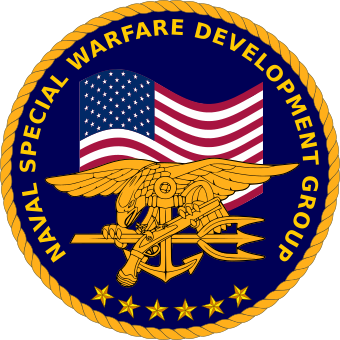
DEVGRU team crest
The main task of DEVGRU is to collect intelligence and conduct various counter-terrorism operations, including naval departments and the U.S. Special Operations Command, as well as in-group development management or technological development, mainly for naval special operations forces (such as SEALs). In the above-mentioned DEVGRU missions, some people think that DEVGRU has the same capabilities as the Delta Force of the Army Special Forces. In fact, the two units also train and communicate with each other and will also deploy together.
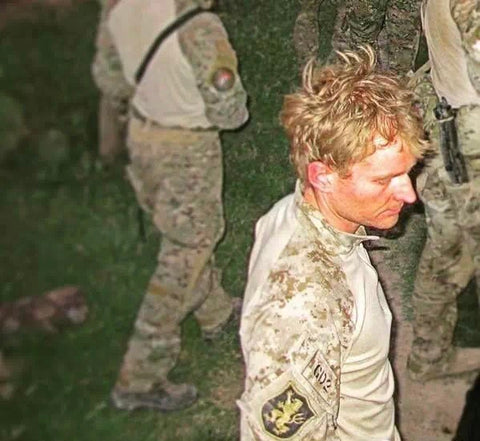
Devgru and delta force joint training
The Devgru is based at the Fleet Training Center Dam Neck in Virginia Beach, Virginia. It is a naval version of Fort Bragg (North Carolina), but focuses on maritime operations. There are shooting ranges, kill house, and an environment simulation in the aircraft cabin and other hostage rescue situations. In view of the particularity of maritime missions, the research team will use some unconventional weapons. And their shooting level is recognized as the top of the world.
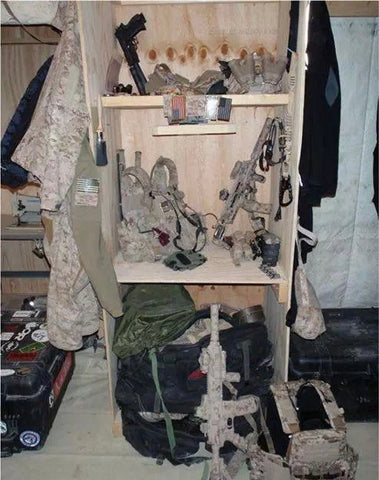
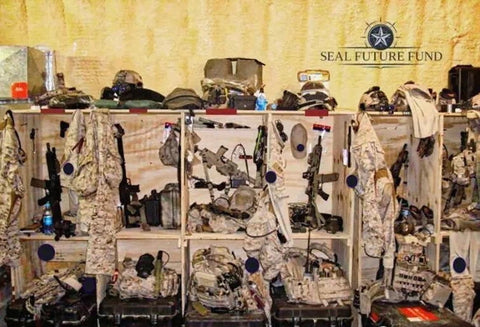
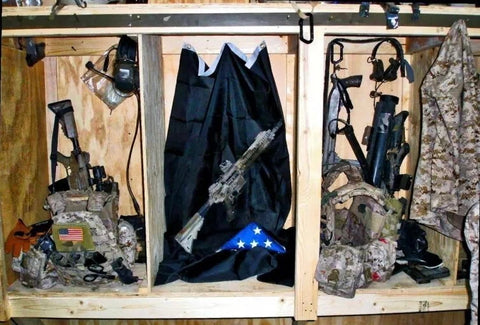
Devgru gear house
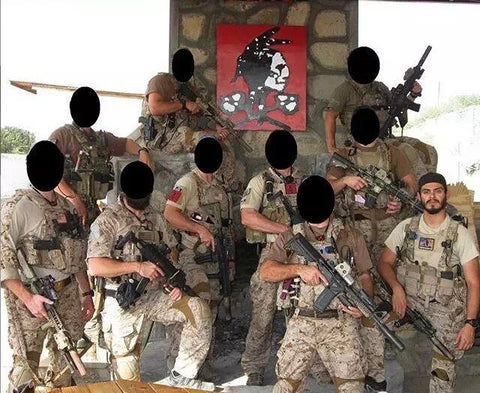
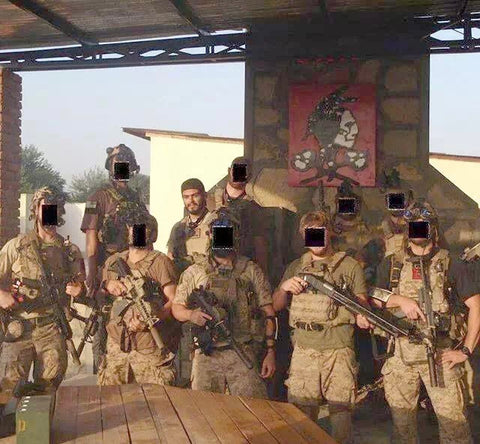
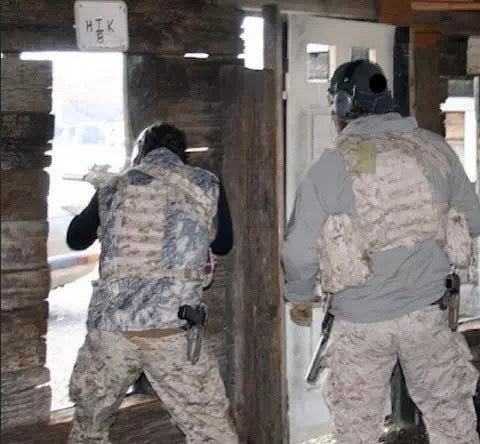

The U.S. government describes the U.S. Naval Special warfare development Group as a unit that oversees the tactics, equipment, and techniques of the Navy's special operations. This statement is indeed true. This unit is directly led by the Naval Special Operations Group (NAVSPECWARGRU), but it is also part of JSOC like other counter-terrorism units. It is believed that the devgru has its own helicopter group (two squadrons, 18 HH-60H), and it regularly trains with the 160 special aviation regiment. Especially for the air support of capturing ships, MH-6 bird helicopters, which only 160 special aviation regiments can use, are often used.
There are four assault Squadrons in DEVGRU: the red Squadron, the blue Squadron, and the gold Squadron, the silver Squadron. The gold Squadron is the top. There is also a special boat team, the Gray Squadron, which uses SDV micro submarines and surface boats to transport the attack team. There is also the green team, which is composed of newcomers who have just entered the devgru and mainly trains newcomers. Every member of the assault team has a specialty, but all of them are diving and HALO experts
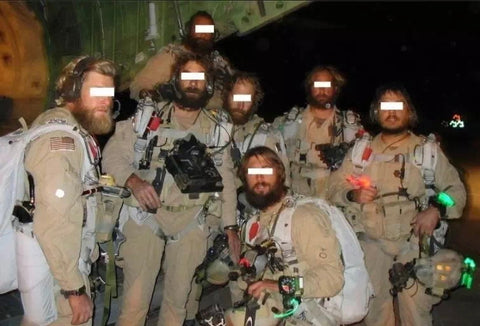
The specific mission scope of these assault teams is unknown, but using logical deduction, it is likely that they are divided into specialized mountain, mobile, boat and air (HALO) units (in the same squadron) like SAS. It is also possible that these units have their own specific goals, such as shipping, drilling platforms, and buildings. However, given the potential for major actions, everyone is required to be equally prepared for combat, so such a setting is unlikely. In addition to the combat team, there are administrative and testing units, which are about 300 people in size. These people are responsible for testing and developing the equipment used in naval special operations (NAVSPECWAR), including weapon systems. The main attacking team and the reserve team are collectively referred to as the White team.
Most of the tasks handed over to DEVGRU (Seal Team Six) are unknown to the public. But some actions are still exposed, such as:
The invation of Grenada;
Operation Restore Hope (Operation Gothic serpent);
Operation in Bosnia
Operation to find dead CIA agents
Operation Anaconda
Protecting Afghan President Karzai
Operation Enduring Freedom
Operation of rescuing Captain Phillips
Operation Neptune Spear......
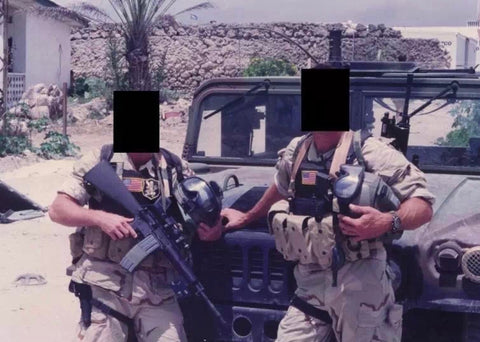
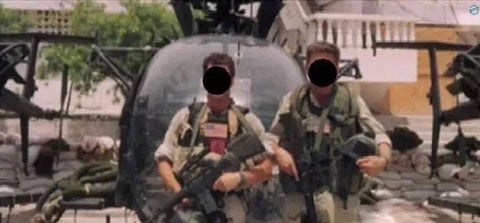
Seal team six snipers in operation gothic serpent
